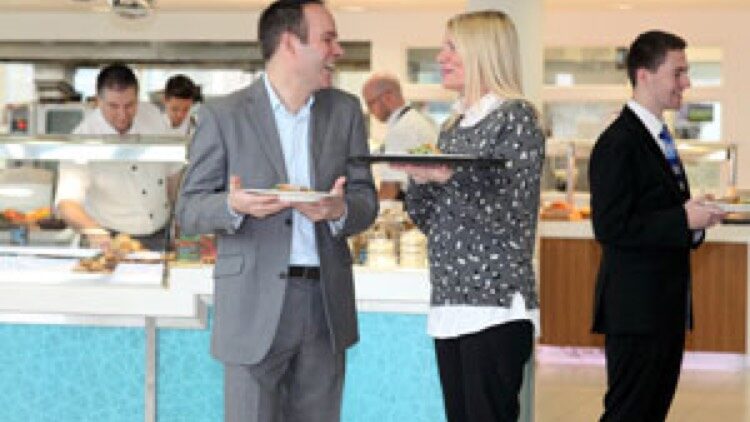
Catering in office and manufacturing buildings is an immense economic investment, but perhaps it is an oversight to look at this investment just in terms of money. In fact, catering can be so much more than this. It’s not only about economic value but it’s about it’s contribution to a business culture overall. Thinking about a business as a family is a great analogy. A family that takes the time to regularly eat together and converse will have different values and a different culture to a family that is disparate and rarely eats together. These two scenarios might cost the same amount of money, but the results are really different! Catering within the cost sector market is a very customer focused service. It must cater to lots of different customer needs, not just providing good food on its own. Customers want a pleasant environment to eat in, a relaxing atmosphere, and a complete experience. Good catering can help maintain strong relationships between work colleagues and cultivate the company’s ethos.
We believe one of the keys to success in any catering contract is in changing the initial monetary cost to a lasting value. It’s the caterer’s authenticity, passion for food and service, and attention to the little details that can make the difference. Clients are looking for good value for money with a personal sense of care and personality. Larger, all-in-one FM solutions can be seen as generalists. To combat this they often bring in specialist suppliers. The problem is that, over time, the effect of these specialists will simply be diluted. FM and large corporate suppliers can make a lot of money from catering, although normally it’s a cost. Finance will be delighted by this, however the HR departments, looking for staff retention and well-being, want value and an experience that beats the high street. The different habits of today’s consumers are another factor. People occasionally cook at home but eat out often, whereas a few decades ago eating out was an infrequent treat. This means mealtimes are inherently more interactive. In contrast to this, our lives generally have less social interaction because of the rise of social media, so preserving mealtimes becomes even more important.
Employee satisfaction is more crucial than ever in tough economic times. Retaining your best people and keeping all your staff motivated and productive is all about their well-being. Companies are recognising this and now build offices that are attractive spaces in themselves, with gym facilities and excellent catering, as well as being fully functional. A recent survey on a new building facility showed that the catering and the gym were the most popular features of the new facility for the staff.
Catering is a lead service in the business that can afford catering, and greater value needs to be created. To do this, caterers must show that a food offer can be integrated within the business, crafting an enduring cultural value rather than just an economic effect.
Wendy Bartlett
Managing Director
Share on:
My earliest food memories are of my mum’s baking; coconut pyramid cakes were my favourite.
More from Wendy Bartlett